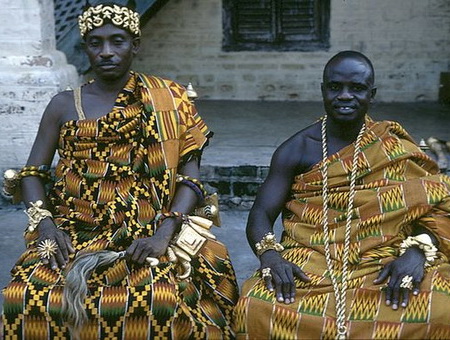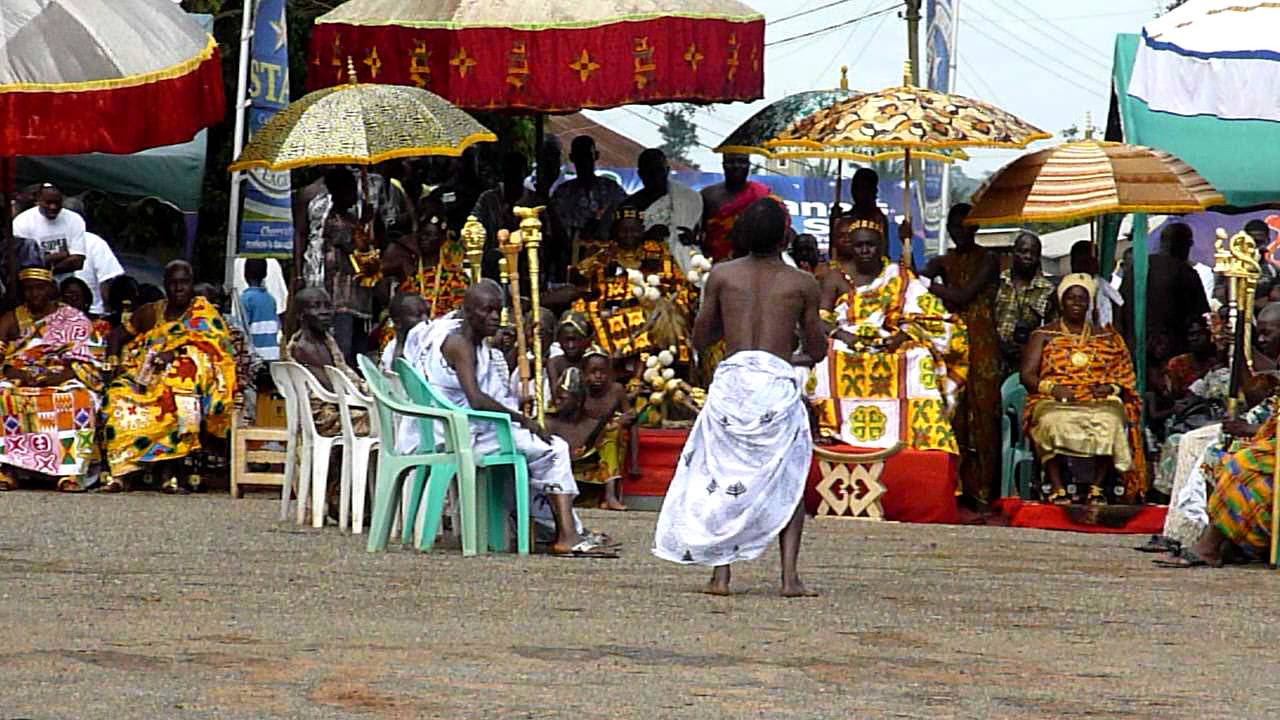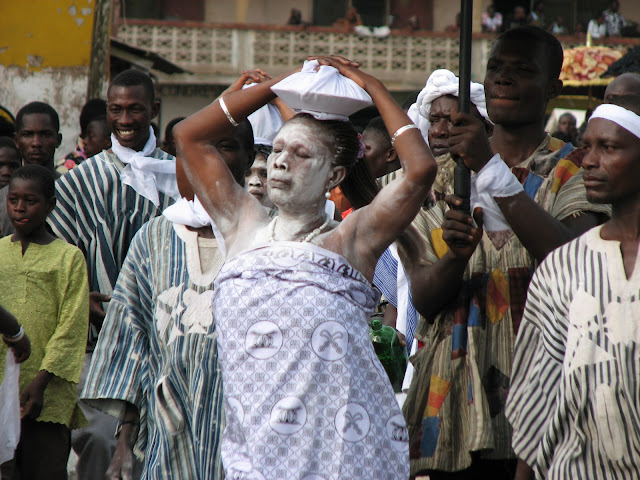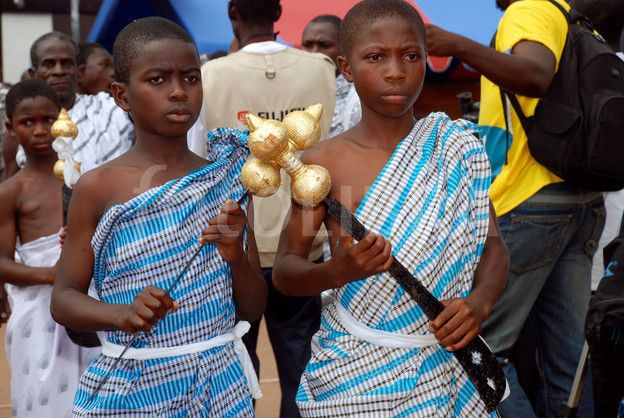Mythologies of the Akuapem Tribe
The Akuapem, is one of the few confederacies in Ghana.It consist of people of Guan and Akan decent.They reside mostly to the south of the Eastern Region of Ghana. They are indigenous, consisting of both patriarchal Volta-Comoe-speaking Guans and matriarchal Kwa-speaking Akans. The Akuapem formerly referred to only Guan speakers, including the Anum, Boso, Larteh, Mamfe, Abotakyi, Mampong, Obosomase, and Tutu Guan blocks as well as the Kyerepong (Okere) Guan blocks, which comprise Abiriw, Dawu, Awukugua, Adukrom, Apirede, and Abonse-Asesieso. The localities that speak Akan Twi include the capital, Akropong and Amanokurom, which are home to immigrants from Akyem and Mampong, who are also from Asante Mampong in Ashanti Region. These multi-ethnic people were given the name Akuapem by Nana Ansa Sasraku I of Akwamu, a renowned warrior king. The word "thousand groups" (Nkuu apem) in Akan Twi is the source of the name. After the people overpowered his Akwamu invasion force, he gave them these names. The term "Nkuu apem" became corrupted to become Akuapem as we currently know them.
The Akuapem are one of the main ethnic groups of the Akan people living in Ghana. They mostly reside south of the Eastern Region of Ghana, in a state that shares common borders with the Ga, Krobo and New Juaben states to the south, northeast and northwest respectively. The Akuapem people are an amalgamation of indigenous patriarchal, Volta-Camoe-speaking Guans and matriarchal, Kwa-speaking Akan people occupying the mountainous Akuapem Hills in the Eastern Region of Ghana. The Akuapem people are the most peaceful, respectful and humblest of all Ghanaian tribes. They are only people even when they want to insult you, they start with an apology. For example for doing something silly or annoying an Akuapem will say "mi pa kyew se woye abia" (I am very sorry but you are a fool). Ghanaians refer to them as "Ofie" (Home). The Akuapem people were originally Guan speaking people which includes Larteh Guan block namely Larteh, Mamfe, Abotakyi, Mampong, Obosomase, and Tutu and the Kyerepong (Okere) Guan block namely Abiriw, Dawu, Awukugua, Adukrom, Apirede, and Abonse-Asesieso. The Akan Twi-speaking towns include Akropong, the capital, and Amanokurom who are emigrants from Akyem and Mampong people who are also emigrants from Asante Mampong in Ashanti Region. The name Akuapem was given to these multi-ethnic group by the famous warrior King, Nana Ansa Sasraku I of Akwamu. The name came from Akan Twi phrase "Nkuu apem" which means "thousand groups." He gave them these name after the people overwhelmed his Akwamu invading army. The name "Nkuu apem got corrupted to Akuapem as we know them today. Akuapem are famous for being the home base of Basel Mission that metamorphosed to Presbyterian Church of Ghana, when in 1835 the missionaries led by Andreas Riis arrived in Akropong with his Mulatto friend Lutterodt of Osu and laid the foundation of the Basel Missionary Evangelization upon which "the gospel took root and spread to all parts of the country.” Legendary reggae icon, Bob marley`s wife, Rita Marley is honorary citizen of Akuapem town,Aburi. She has been living here for ages. She owns her recording studios and other businesses on the Akuapem Mountains.
Akuapem, also known as Akuapim, Akwapem Twi, and Akwapi, is one of the principal members of the Akan dialect continuum, along with Bono and Asante, with which it is collectively known as Twi, and Fante, with which it is mutually intelligible. There are 626,000 speakers of Akuapem, mainly concentrated in Ghana and southeastern Cote D'Ivoire. It is the historical literary and prestige dialect of Akan, having been chosen as the basis of the Akan translation of the Bible. The name Akuapem is thought to derive from either Akan nkoa apem ("thousand subjects") or akuw-apem ("thousand companies"). Akuapem's orthography was first developed by missionaries at the Gold Coast Basel Mission in 1842, but its written history begins in 1853 with the publication of two grammars, the German Elemente des Akwapim Dialects der Odshi Sprache and the English Grammatical Outline and Vocabulary of the Oji Language with especial reference to the Akwapim Dialect, both written by Hans Nicolai Riis, nephew of the Gold Coast Basel Mission's founder Andreas Riis. These would not be followed in the bibliography of Akuapem writing until the translation of the New Testament. Akuapem was chosen as a representative dialect for Akan because the missionaries at Basel felt it a suitable compromise. Christaller, who had himself learned Akyem but believed Akuapem was the better choice, described the issue, and its solution, in the introduction to his 1875 Grammar of the Asante and Fante language called Tshi: It [Akuapem] is an Akan dialect influenced by Fante, steering in the middle course between other Akan dialects and Fante in sounds, forms and expressions; it admits peculiarities of both branches as far as they do no contradict each other, and is, therefore, best capable of being enriched from both sides.































Comments
Post a Comment